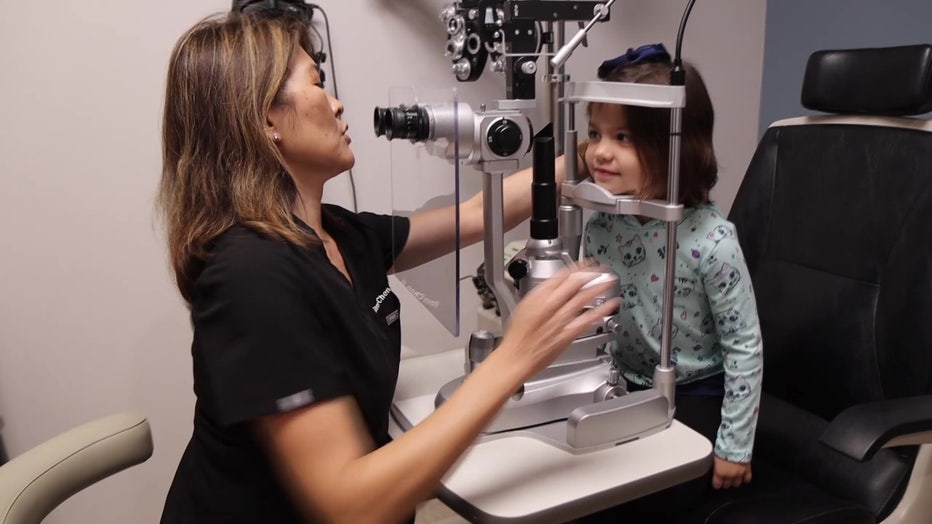'It's a lifetime risk': Why parents should protect their kids eyes from the sun

Why parents should protect their kids eyes from the sun
One survey found 72% of parents apply sunblock to their kids, but only 30% use sunglasses.
TAMPA, Fla. - The three Lankford sisters love to race around the sidewalks of their neighborhood on scooters. When they do, their father, Mike, knows there's one thing they can't outrun in Florida: The sun.
That's he why he has them grab a pair of sunglasses when they head outside.
"We definitely think about it a lot. I always have mine on, so I try to encourage them to wear theirs as well," said Mike.
Pediatric ophthalmologist Dr. Ronnie Chen, with The Florida Eye Specialist and Cataract Institute, said that's a great idea, but unfortunately, most parents don't do it. One survey found 72% of parents apply sunblock to their kids, but only 30% use sunglasses.
"But it’s the same type of exposure, so really those numbers should be the same," said Dr. Chen.

That's UV, or ultraviolet, exposure. It's something all Floridians need to be aware of. And when it comes to protecting your eyes from UV damage, it's more of a marathon than a sprint.
"People who have long term UV exposure, they have a higher risk for developing cataracts, they can get growths on the white of their eyes, and even an increased risk for macular degeneration. It's a lifetime risk," said Dr. Chen.
That's why starting protection, with a pair of sunglasses, at early age is important. They don’t have to be fancy, expensive sunglasses. After all, kids lose everything.
Dr. Chen says no matter what sunglasses you buy, there's one absolute ‘must-have.’

"There is a label. It says UVA/UVB blocking. As long as it says 100% UAV/UAB, you’re good," Dr. Chen said.
Dr. Chen said if the sunglasses fall off a lot, try sunglasses with a strap. He also said to make sure kids wear polycarbonate lenses that won't shatter during sports. And lastly, don't force the issue if a young child refuses to wear sunglasses, try a hat until they're a little older, Dr. Chen suggested.
It's all about keeping a healthy balance with one of Florida's greatest features.
"We don’t have to be terrified of the sun, we just need to be reasonable," said Dr. Chen.

